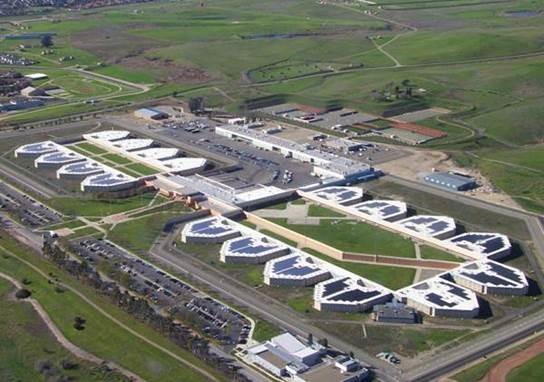You are here: Home » What We Work On » Purchasing » Success Stories in Purchasing » Food Services at Santa Rita Jail

We partner with our vendor to implement a sustainability plan to address key sustainability issues ranging from facility energy use to the climate impact of ingredients.
Food Services at Santa Rita Jail
In a County jail, food service must adhere to nutritional standards and account for safety and cost considerations. The Santa Rita Jail kitchen produces thousands of meals per day, using dozens of pieces of equipment. Food and food services cause environmental impacts from the farm to the kitchen. To address sustainability concerns and allow for flexibility in a dynamic and high-security environment, Alameda County requires the jail’s food service vendor/contractor to develop a Sustainability Plan in coordination with internal County stakeholders.
Typically, sustainability goals are set before a contract is awarded, with written requirements intended to help reach those goals. However, the complexity of jail food service means that collaboration with the vendor – which must take place after the contract has been awarded – is needed to set meaningful goals. As such, Alameda County took a unique approach, requiring the development of the food service vendor’s Sustainability Plan. This effort addresses issues ranging from facility energy use to the climate impact of ingredients in the jail environment.
How We Did It
- Some sustainable practices are included as contract requirements, such as recycling and the use of reusable serving ware.
- In addition to the outright requirements, the vendor is required to develop, in consultation with County stakeholders, a Sustainable Food Service Action Plan within 60 days of contract start. The Plan identifies efforts the contractor will take to minimize the generation of waste, divert waste that is generated from going to the landfill, reduce the energy use of equipment, and minimize other environmental and social impacts associated with the provision of food.
- County and vendor stakeholders meet quarterly to assess progress on goals set out in the Sustainability Plan. At these meetings, participants identify opportunities for collaboration and problem-solve barriers. County stakeholders include: the Sheriff’s office, responsible for safety and security of inmates and staff; the Energy program, responsible for implementing efficiency initiatives in the County; and the Building Maintenance Department, responsible for the facility and equipment maintenance.
Challenges
- In a correctional environment there are serious safety considerations, so it is important to address sustainability in a holistic way and to partner with all stakeholders to set realistic goals.
- Implementing a Sustainability Plan requires a significant amount of staff time to ensure meaningful progress will be achieved. We have found that using a Plan rather than simple requirements is an effective strategy for contracts with significant complexity or where no one stakeholder has all the necessary information.
Benefits
- The Sustainability Plan model brings all stakeholders together to identify opportunities for sustainability improvements in real time over the life of the contract.
- Annual updates to the Sustainability Plan allows for the vendor to set incremental, but meaningful, goals and provides a framework for continuous improvement.
Document
- Food Service Bid Excerpt (PDF - 297kb) *

